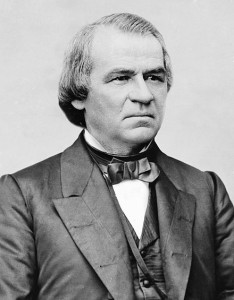Today being the 61st anniversary of the Sputnik launch, here’s a rerun of a post about a very interesting book.
Rockets and People , by Boris E Chertok
, by Boris E Chertok
Boris Chertok’s career in the Russian aerospace industry spanned many decades, encompassing both space exploration and military missile programs. His four-volume memoir is an unusual documentpartly, it reads like a high school annual or inside company history edited by someone who wants to be sure no one feels left out and that all the events and tragedies and inside jokes are appropriately recorded. Partly, it is a technological history of rocket development, and partly, it is a study in the practicalities of managing large programs in environments of technical uncertainty and extreme time pressure. Readers should include those interested in: management theory and practice, Russian/Soviet history, life under totalitarianism, the Cold War period, and missile/space technology. Because of the great length of these memoirs, those who read the whole thing will probably be those who are interested in all (or at least most) of the above subject areas. I found the series quite readable; overly-detailed in many places, but always interesting. In his review American astronaut Thomas Stafford said “The Russians are great storytellers, and many of the tales about their space program are riveting. But Boris Chertok is one of the greatest storytellers of them all.” In this series, Chertok really does suck you into his world.
Chertok was born in Lodz, Poland, in 1912: his mother had been forced to flee Russia because of her revolutionary (Menshevik) sympathies. The family returned to Russia on the outbreak of the First World War, and some of Chertok’s earliest memories were of the streets filled with red-flag-waving demonstrators in 1917. He grew up on the Moscow River, in what was then a quasi-rural area, and had a pretty good childhood“we, of course, played “Reds and Whites,” rather than “Cowboys and Indians””swimming and rowing in the river and developing an early interest in radio and aviationboth an airfield and a wireless station were located nearby. He also enjoyed reading“The Adventures of Tom Sawyer and Huckleberry Finn met with the greatest success, while Harriet Beecher Stowe’s Uncle Tom’s Cabin gave rise to aggressive moods’Heyafter the revolution in Europe, we’ll deal with the American slaveholders!” His cousin introduced him to science fiction, and he was especially fond of Aelita (book and silent film), featuring the eponymous Martian beauty.
Chertok remembers his school years fondlythere were field trips to study art history and architectural styles, plus a military program with firing of both rifles and machine gunsbut notes “We studied neither Russian nor world history….Instead we had two years of social science, during which we studied the history of Communist ideas…Our clever social sciences teacher conducted lessons so that, along with the history of the French Revolution and the Paris Commune, we became familiar with the history of the European peoples from Ancient Rome to World War I, and while studying the Decembrist movement and 1905 Revolution in detail we were forced to investigate the history of Russia.” Chertok purused his growing interest in electronics, developing a new radio-receiver circuit which earned him a journal publication and an inventor’s certificate. There was also time for skating and dating“In those strict, puritanical times it was considered inappropriate for a young man of fourteen or fifteen to walk arm in arm with a young woman. But while skating, you could put your arm around a girl’s waist, whirl around with her on the ice to the point of utter exhaustion, and then accompany her home without the least fear of reproach.”
Chertok wanted to attend university, but “entrance exams were not the only barrier to admission.” There was a quota system, based on social class, and “according to the ‘social lineage’ chart, I was the son of a white collar worker and had virtually no hope of being accepted the first time around.” He applied anyhow, hoping that his journal publication and inventor’s certificate in electronics would get him in.” It didn’the was told, “Work about three years and come back. We’ll accept you as a worker, but not as the son of a white-collar worker.”
So Chertok took a job as electrician in a brick factory…not much fun, but he was soon able to transfer to an aircraft factory across the river. He made such a good impression that he was asked to take a Komsomol leadership position, which gave him an opportunity to learn a great deal about manufacturing. The plant environment was a combination of genuinely enlightened managementworker involvement in process improvement, financial decentralizationcolliding with rigid policies and political interference. There were problems with absenteeism caused by new workers straight off the farm; these led to a government edict: anyone late to work by 20 minutes or more was to be fired, and very likely prosecuted. There was a young worker named Igor who had real inventive talent; he proposed an improved linkage for engine and propeller control systems, which worked out well. But when Igor overslept (the morning after he got married), no exception could be made. He was fired, and “we lost a man who really had a divine spark.” Zero tolerance!
Chertok himself wound up in trouble when he was denounced to the Party for having concealed the truth about his parentsthat his father was a bookkeeper in a private enterprise and his mother was a Menshevik. He was expelled from the Komsomol and demoted to a lower-level position. Later in his career, he would also wind up in difficulties because of his Jewish heritage.
The memoir includes dozens of memorable characters, including:
*Lidiya Petrovna Kozlovskaya, a bandit queen turned factory supervisor who became Chertok’s superior after his first demotion.
*Yakov Alksnis, commander of the Red Air Forcea strong leader who foresaw the danger of a surprise attack wiping out the planes on the ground. He was not to survive the Stalin era.
*Olga Mitkevich, sent by the regime to become “Central Committee Party organizer” at the factory where Chertok was working…did not make a good first impression (“had the aura of a strict school matronthe terror of girls’ preparatory schools”)..but actually proved to be very helpful to getting work done and later became director of what was then the largest aircraft factory in Europe, which job she performed well. She apparently had too much integrity for the times, and her letters to Stalin on behalf of people unjustly accused resulted in her own arrest and execution.
*Frau Groettrup, wife of a German rocket scientist, one of the many the Russians took in custody after occupying their sector of Germany. Her demands on the victors were rather unbelievable, what’s more unbelievable is that the Russians actually yielded to most of them.
*Dmitry Ustinov, a rising star in the Soviet hierarchyaccording to Chertok an excellent and visionary executive who had much to do with Soviet successes in missiles and space. (Much later, he would become Defense Minister, in which role he was a strong proponent of the Soviet invasion of Afghanistan.)
*Valeriya Golubtsova, wife of the powerful Politburo member Georgiy Malenkov, who was Stalin’s immediate successor. Chertok knew her from schoolshe was an engineer who became an important government executiveand the connection turned out to be very useful. Chertok respected her professional skills, liked her very much, and devotes several pages to her.
*Yuri Gagarin, first man to fly in space, and Valentina Tereshkova, the first woman.
*Overshadowing all the other characters is Sergei Korolev, now considered to be the father of the Soviet space program although anonymous during his lifetime. Korolev spent 6 years in labor camps, having been arrested when his early rocket experiments didn’t pan out; he was released in 1944. A good leader, in Chertok’s view, though with a bad temper and given to making threats that he never actually carried out. His imprisonment must have left deep scarswriting about a field trip to a submarine to observe the firing of a ballistic missile, Chertok says that the celebration dinner with the sub’s officers was the only time he ever saw Korolev really happy.
Chertok’s memoir encompasses the pre-WWII development of the Soviet aircraft industry…early experiments with a rocket-powered interceptor…the evacuation of factories from the Moscow area in the face of the German invasion…a post-war mission to Germany to acquire as much German rocket technology as possible…the development of a Soviet ballistic missile capability…Sputnik…reconnaissance and communications satellites…the Cuban missile crisis…and the race to the moon.
Some vignettes, themes, and excerpts I thought were particularly interesting:

